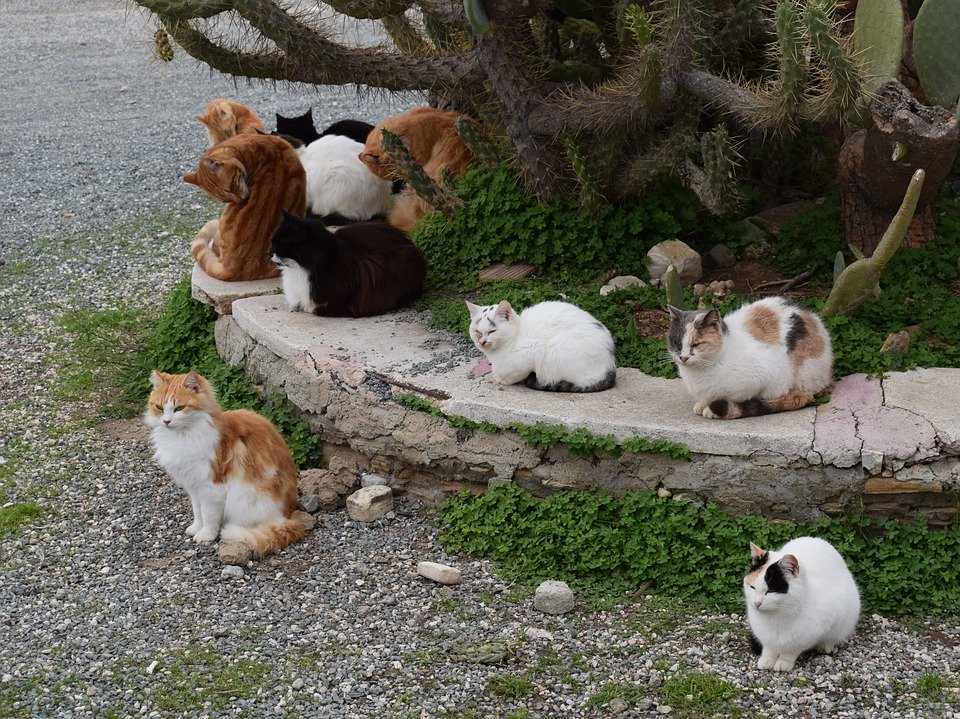Cats in Cyprus are facing a severe crisis as experts warn of a deadly outbreak of feline infectious peritonitis (FIP).
Since January, thousands of cats, both stray and domestic, have fallen victim to the disease which is a mutation of the feline coronavirus (FCoV).
The situation has raised concerns about the potential spread of the virus to other countries, including Britain, prompting international news outlets such as France24, the Daily Mail and The Telegraph to report on the issue.
In statements to Agence France-Presse (AFP), Demetris Epaminondas, Vice President of the Pancyprian Veterinary Association, expressed alarm over the rapid increase in FIP cases across the island, starting from Nicosia. This outbreak, unlike previous ones confined to catteries, is unprecedented in scale.
Symptoms of FIP include fever, abdominal swelling, loss of energy, and sometimes heightened aggression. Kittens and young cats are particularly susceptible to the virus.
Professor Danièlle Gunn-Moore, a feline medicine specialist at the University of Edinburgh, described the outbreak as unparalleled in recorded history. Reports of deceased cats on the streets and suspicions of a more virulent strain of FIP have sparked concerns about the severity of the situation. Tests are currently underway to confirm the presence of a new strain.
Bureaucratic hurdles hampering treatment
Local authorities have taken some measures to address the crisis, establishing an advisory team, launching a media awareness campaign, and working towards amending legislation to allow the use of drugs for cat treatment. However, it is emphasised that no cats should leave the country without testing negative for the virus, as the risk of spreading FIP to other regions is a significant concern. Animal welfare volunteers say that these could be devastating for strays, as many rescued cats are sent to foster homes, mainly in the UK.
The main obstacle in combating FIP is the lack of available medical treatment. Experts advocate for the use of two drugs, remdesivir (used for Covid-19) and its related drug GS-441524, but bureaucratic hurdles and high costs have hindered their implementation.
While GS-441524 is approved for animal use in the UK and can be imported to Cyprus, its expense presents a significant barrier, ranging from £2,500 to £6,000 for a cat weighing between 3kg and 4kg.
Another potential option, the antiviral drug molnupiravir, used in treating Covid-19 in humans, offers a more affordable alternative at approximately £170 per animal. However, the request to authorise this treatment for cats was rejected in May, citing the inability to import human drugs for veterinary care.
Professor Gunn-Moore urged the Cypriot government to make GS-441524, remdesivir, and molnupiravir readily available for all cats, stressing that the ultimate solution lies in developing a vaccine.
In the absence of government action, some individuals are taking matters into their own hands, resorting to purchasing drugs from a flourishing black market of cheap, unlicensed medications. Vasiliki Mani, a member of multiple animal welfare organisations, told AFP that she has spent a substantial portion of her savings to treat two sick strays.
She expressed concerns that if FIP is not contained soon, Cyprus may become known as “the island of dead cats.”
Read more:
Vets plea for drugs as 300,000 cats in Cyprus believed to have perished of infectious disease






